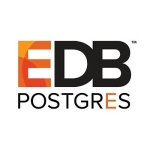What is most valuable?
So from the database perspective, we usually are talking about three important things. So the obvious ones are the multitenancy in the pluggable databases. The second category, I would call it performance, making sure that we are getting the right value from the databases in terms of data access. And the third one is obviously the security. So, we are more interested in implementing solutions that, we are actually excited to see Oracle come in with release two with all the issues we have, from 11g and on. So, 12.1 is there, but we want to see what's coming up in 12c at release two, and we are really excited about multitenancy. The whole security aspect, and then the performance as such.
How has it helped my organization?
So from the cloud perspective, I think there are too many vendors out there. One of the things we are excited from the Oracle perspective is their ability to take us off of our backups, the database backup. Using that, they can take us to the cloud and we want to try that out, mostly on their test end, as of now. And once we see how the ROI is, and what kind of a performance we are getting and then also check on how the security is, then we might probably consider going a little bit deeper into low-level production applications, all the way into the business applications.
So right now we are evaluating their trial period with Oracle on migrating in their databases, and we are also excited to use some of their backup and recovery solutions, which basically, you take your database and you run your backups, right now it is running on your local disk, but then we are configuring that to go into the cloud. So one of the cool features we are using from Oracle is the RMAN. It takes a second set of channels, and just take it as a destination and that goes into the cloud. So we can restore it at the same time from either of the options, on-prem or from the cloud. So we are excited to see how that works, because that is something that Oracle has recently come up with.
What needs improvement?
So we want to see, obviously, besides Oracle databases, what other databases can be provisioned and integrated in the cloud. So if I have to have an application running off of a non-Oracle database, and I have an application and the database running in cloud, which is an Oracle, I want to see if I can integrate them through what kind of a web service, how can I transfer the data? How do I move my processes without having to come back into my on prem and then go back into the secondary cloud? So those are some of the integration points I'm looking at.
And the second important thing I'm looking at is, the overall governance. How Oracle can provide their cloud control and give use the ability to manage the on prem and the off prem cloud services, combined in a single view.
Which solution did I use previously and why did I switch?
So obviously we did an ROI analysis and a TCU. So, we have seen that the cost is definitely a factor. And security is more important, so that's why we did not press the button on the production yet. So we are piloting with the non-prod to see what kind of security we're going to get, what kind of threats are we going to be exposed to. And once we are satisfied, once we get our sign-off from the management, we might probably pull the trigger. But we are in the evaluation period.
What about the implementation team?
Onboarding: so the Database Cloud, the way we have seen is, so you have a cloud control and you go in and, based on your subscription, you actually get the environment. So once you get the environment, you generate the security keys to establish the network connectivity between the on prem to the public and once we have the provision done, then you can actually encrypt the data on the source side, and move them into the cloud through their cloud control utility. So that's how we migrate them. Now, we haven't done a lot of the big databases yet. So we are piloting on the small ones. So, so far, the pilot ones look good which are close to about 300 to 400 GB databases. But we want to see how that goes with couple of terabytes of databases.
Which other solutions did I evaluate?
Scalability is number one. Data transfer is number two. And security actually tops, on top of that. And the ability to move the workloads between on-prem and off-prem. So that's one of the big things you are looking at, and if we don't like things, and if you want to push back, and we want to come back to our on-prem, what options do we have? So, can we migrate easily from a public cloud to a private cloud and private cloud to an on-prem cloud, and vice-versa. So, having that ability is a big thing, because we don't want to invest in something where we go to the cloud but we don't know how to come back. So we don't want it to be a one-way street, we want to choose a product that can give us an opportunity to not only go into the cloud, but also in a worst-case scenario, come back out.
So initially we started with Amazon. We tested a little bit, but the security was a big thing for us and the way they handle security is a little different I don't necessarily say it is wrong or bad, it's just that I was not very comfortable having the keys being shared versus in Oracle, the security keys are owned by the customer which is us, as opposed to with the vendor, and that was a prime difference for us. And second thing was, Amazon cloud is more on the infrastructure provisioning and metered. They don't give a database as a service. They do have some options, but being an Oracle customer, we know what Oracle can provide, which is totally a value-add kind of a service, with a lot of different shaders, compared to the others like Amazon or Rackspace or a hundred different partners. But I think it's because we are very close with Oracle, we can see how they can give us those value add services.
What other advice do I have?
So the Database Cloud on Oracle right now, I think it's there, but there is some room to grow. So I wouldn't give them 10 yet. I would hold on to that. Probably eight would be a better option. But I want to see the growth in terms of, not only on the vertical side, I want to see the horizontal growth, in terms of how they can leverage, as I said earlier, integrating with other systems. So, if they can grow both horizontally and vertically, then probably I can give them a 10. But at this time, they are not there yet.
So I would say, anybody who wants to get into the cloud, evaluate your options. Check out your dev and test environments first. Check out your backup as a service, because it's very easy. You just have to set your targets and push your database backups. So try with those two first, and see the difference, and compare that with your other vendors. And see what kind of a response latency you're getting from the cloud. And make the call. I mean, that's what I did, and it was clear.
Disclosure: PeerSpot contacted the reviewer to collect the review and to validate authenticity. The reviewer was referred by the vendor, but the review is not subject to editing or approval by the vendor. The reviewer's company has a business relationship with this vendor other than being a customer: We're partners.













Our experience was about the opposite. We went to scale up storage space, and could not. Without the help of our support specialist, we would have never gotten this accomplished. We are moving to a different cloud server in the coming months, so this should not happen again. But one of the things we have loved about the Oracle Cloud has been support. Definitely leaps and bounds ahead of where the on-premise product is in terms of technical support.
Thanks for offering your perspective. I'd be interested to hear the experience of others.